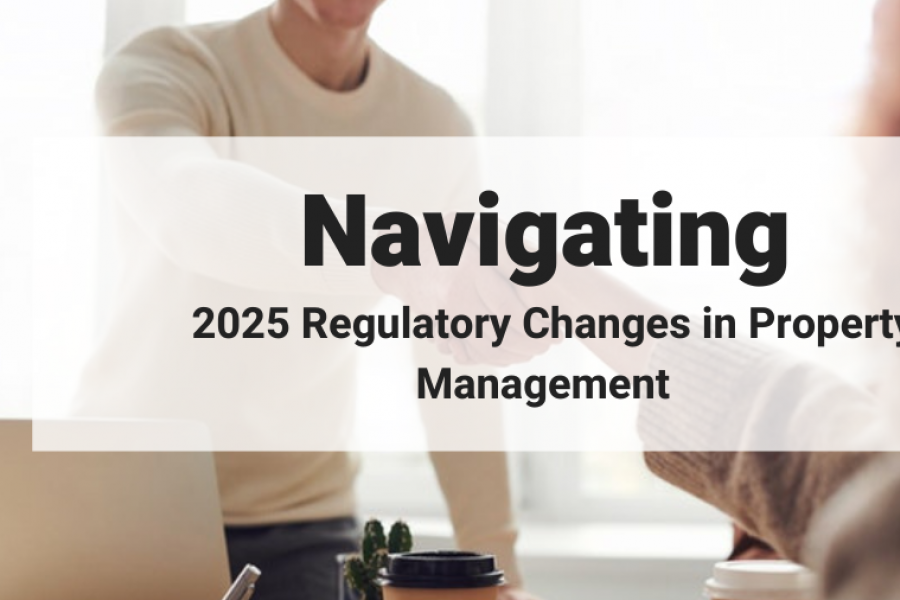
Key Takeaways
- Rent adjustments face stricter oversight – While Florida does not have statewide rent control, local governments are adding notice requirements and limits on increases, so landlords must review leases and plan renewals carefully.
- Tenant protections are expanding – Rules around security deposits, late fees, and eviction timelines are tightening, making clear communication and consistent documentation essential.
- Transparency and sustainability are priorities – Landlords must provide more detailed disclosures, inspection records, and itemized receipts, while also preparing for energy-efficiency upgrades that improve compliance and tenant satisfaction.
- Proactive management reduces risks – Using digital tools, compliance checklists, and professional property managers helps landlords stay ahead of deadlines, avoid penalties, and build stronger tenant relationships.
Property owners in Central Florida are facing new regulatory changes in 2025 that will directly impact how rentals are managed.
Rent policies, tenant protections, reporting rules, and building standards are being updated, and landlords need to understand what is changing in order to stay compliant.
Ignoring these updates can result in costly penalties, strained tenant relationships, and missed opportunities to improve property performance.
To help landlords prepare, State Property Management has put together this article to explain the key changes, what they mean for you, and how to adapt your rental business in a practical and effective way.
Central Florida’s Property Management Specialists! Call today: (407) 634-2800
Key 2025 Updates for Landlords
Rent Rules on the Rise
Local governments in Florida continue to keep a close eye on rental prices as housing demand grows.
While statewide rent control has not been adopted, counties and cities may set limits or stricter rules around rent increases in 2025. For example, some areas are requiring landlords to provide more notice before raising rents or to justify increases above certain percentages.
Review your rental agreements carefully and track renewal dates so you can provide the proper notice period. Staying consistent with fair rental increases can also reduce disputes and keep turnover low.
Putting Tenants First
Tenant protection laws are expanding in many areas, and Florida is following this trend.
In 2025, landlords must pay closer attention to rules about lease terms, late fees, security deposits, and eviction procedures. Clear communication and proper documentation will be more important than ever.

For example, security deposit handling must follow strict timelines for returning funds, and late fees must fall within allowable limits. In addition, eviction processes are being tightened to protect tenants from sudden removals without proper cause or notice.
Landlords who adopt tenant-friendly practices, such as offering flexible payment options or responding quickly to repair requests, will not only stay compliant but also build stronger tenant relationships.
Clearer Rules, Fewer Surprises
One of the main goals of the 2025 updates is to increase transparency. Property owners will be expected to provide tenants with clearer lease agreements, more detailed move-in and move-out documentation, and upfront disclosures about fees.
For landlords, this means simplifying your paperwork and making sure tenants know exactly what they are agreeing to.
Providing itemized receipts, keeping accurate records, and giving tenants copies of inspection reports can prevent conflicts later. These steps may seem small but can save significant time and money if a dispute arises.
Greener Buildings, Smarter Savings
Sustainability is no longer just a trend; it is becoming a requirement. Florida has been introducing energy efficiency standards that will affect rental properties in 2025.
Property owners may need to upgrade appliances, improve insulation, or provide recycling options. Some local codes also encourage the use of water-saving fixtures and renewable energy systems.

While these upgrades may require an upfront investment, they often result in lower utility bills and increased tenant satisfaction.
Energy-efficient properties are also more attractive to renters who value cost savings and comfort. Landlords should look at available incentives, tax credits, or rebate programs that can help offset improvement costs.
Easy Moves to Stay Ahead of 2025 Changes
Preparing for regulatory changes does not have to be complicated. Start with a compliance checklist that covers rent increases, tenant communication, lease updates, and building standards.
Regularly review your property documents and keep digital copies of leases, notices, and inspection reports.
It is also helpful to create a calendar with key deadlines, such as renewal dates, notice periods, and inspection schedules. This ensures that nothing slips through the cracks and that you always meet legal requirements.
If you manage multiple properties, consider using property management software to automate reminders, track payments, and store records. This will make compliance easier and reduce the risk of mistakes.
Future-Proofing Your Property Game
The rental market in Central Florida is competitive, and staying ahead of regulations is only part of the challenge. Landlords who focus on long-term planning will be in the best position to thrive.
Future-proofing your property means keeping an eye on trends like digital lease signing, online payment systems, and tenant portals for communication.

It also means budgeting for repairs and upgrades instead of waiting for emergencies. Many landlords also choose to hire a professional property manager to handle daily operations, ensure compliance with new laws, and reduce the stress of managing rentals alone.
Proactive landlords who maintain their properties, keep tenants informed, use modern tools, and work with experienced property managers will see fewer problems and stronger returns over time.
Bottom Line
The 2025 regulatory changes bring new requirements for rent adjustments, tenant protections, transparency, sustainability, and overall management practices.
Landlords in Central Florida who understand these updates and take proactive steps will avoid penalties, improve tenant satisfaction, and strengthen their rental business.
State Property Management is here to help landlords navigate these changes with confidence.
From lease preparation and compliance checks to tenant communication and property upkeep, our team provides the expertise and support needed to stay on top of 2025 regulations.
Contact us today to learn how we can simplify property management and help you succeed in the year ahead.